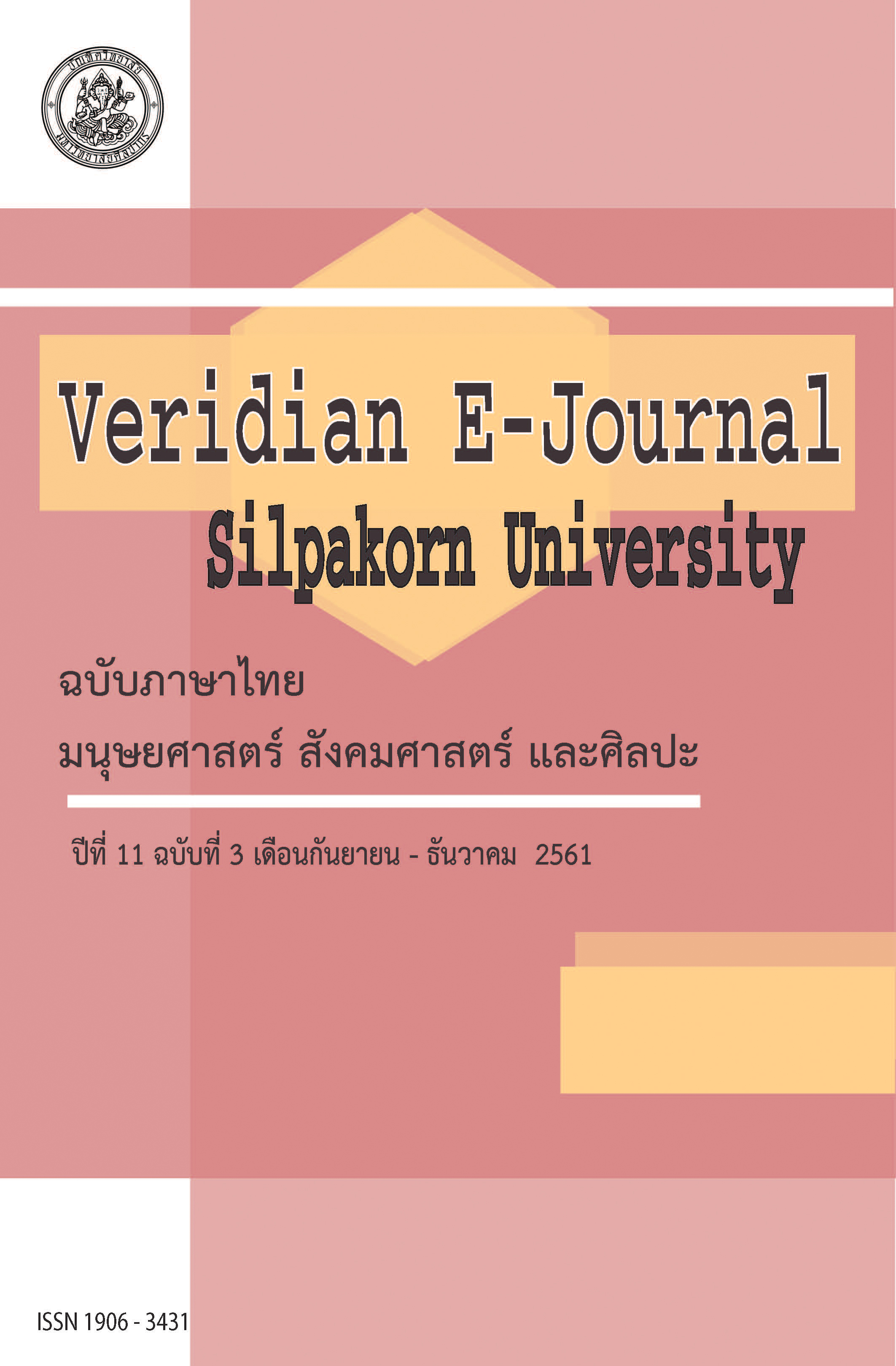รูปแบบความสัมพันธ์เชิงสาเหตุประสิทธิผลของการฝึกอบรมเพื่อพัฒนา ทักษะอาชีพ ผู้สูงอายุ (Causal Model of Effectiveness for Training of Career Skills Development of the Elderly)
Main Article Content
Abstract
การวิจัยครั้งนี้มีวัตถุประสงค์เพื่อศึกษารูปแบบความสัมพันธ์เชิงสาเหตุของประสิทธิผลของการฝึก อบรมเพื่อพัฒนาทักษะอาชีพผู้สูงอายุ โดยใช้ระเบียบวิธีแบบผสานวิธี (mixed methodology) วิเคราะห์ข้อมูล เชิงปริมาณร่วมกับข้อมูลเชิงคุณภาพ กลุ่มเป้าหมายที่ใช้ในการเก็บข้อมูลเชิงคุณภาพ เป็นผู้เชี่ยวชาญด้านพัฒนา ทักษะอาชีพผู้สูงอายุ จำนวน 7 คน โดยการเลือกแบบเจาะจง และกลุ่มตัวอย่างเป็นผู้สูงอายุในศูนย์พัฒนา คุณภาพชีวิตและส่งเสริมอาชีพผู้สูงอายุ จำนวน 420 คน ได้มาจากการสุ่มแบบหลายขั้นตอน เครื่องมือการวิจัย ประกอบด้วยแนวคำถามสนทนากลุ่ม และแบบสอบถาม สถิติที่ใช้ในการวิเคราะห์ ได้แก่ ค่าร้อยละ ค่าเฉลี่ย ค่าสหสัมพันธ์แบบเพียร์สัน การวิเคราะห์องค์ประกอบเชิงยืนยัน การวิเคราะห์โมเดลสมการโครงสร้างและการวิเคราะห์เนื้อหา ผลการวิจัยสรุปได้ดังนี้ 1) องค์ประกอบที่มีอิทธิพลต่อประสิทธิผลของการฝึกอบรม เพื่อพัฒนาทักษะอาชีพผู้สูงอายุ ประกอบด้วย คุณลักษณะเฉพาะบุคคล การออกแบบการฝึกอบรม สภาพแวดล้อม การฝึกอบรม และแรงจูงใจการฝึกอบรม 2) รูปแบบความสัมพันธ์เชิงสาเหตุประสิทธิผลของ การฝึกอบรมเพื่อพัฒนาทักษะอาชีพผู้สูงอายุมีความสอดคล้องกับข้อมูลเชิงประจักษ์อยู่ในเกณฑ์ดี (X 2 = 42.72 df = 40 p. = 0.35 GFI = 0.99 AGFI = 0.96 RMR = 0.01 RMSEA = 0.01) องค์ประกอบทั้งหมดในรูปแบบ สามารถอธิบายความแปรปรวนประสิทธิผลของการฝึกอบรมเพื่อพัฒนาทักษะอาชีพผู้สูงอายุได้ร้อยละ 93 โดยแรงจูงใจการฝึกอบรมเป็นองค์ประกอบที่ส่งผลต่อประสิทธิผลของการฝึกอบรมเพื่อพัฒนาทักษะ อาชีพผู้สูง อายุมากที่สุด รองลงมาคือ สภาพแวดล้อมการฝึกอบรม คุณลักษณะเฉพาะบุคคล และการออกแบบ การฝึกอบรม
The objective of this study was to examine the causal model of the effectiveness of developing career skills of the elderly. The study used mixed methodology (qualitative method and quantitative method) the qualitative method applied the purposive sampling to identify 7 experts in career skill development while the 420 elders were selected from the quality of life and supportive career for elder center through the multi-stage random sampling. The research methods comprised were question guideline and questionnaire. The statistics were used in the form of percentage, mean, Pearson’s Product Moment Correlation, Confirmatory Factor Analysis, Structure Equation Model. Content analysis was used to analyze the qualitative data. The results found that 1) the component of individual characteristic, training design, training environment and training motivation affected the effectiveness of the developing career skill of the elder. 2) A causal model of the effectiveness of the elder career skill development had in line with the empirical data (X 2 = 42.72 df = 40 p. = 0.35 GFI = 0.99 AGFI = 0.96 RMR = 0.01 RMSEA = 0.01). These components explained the effectiveness of career skill development of the elder variance of 93 % that the first component were training motivation, the second: environment training, the third: individual characteristic, the fourth: training design.

